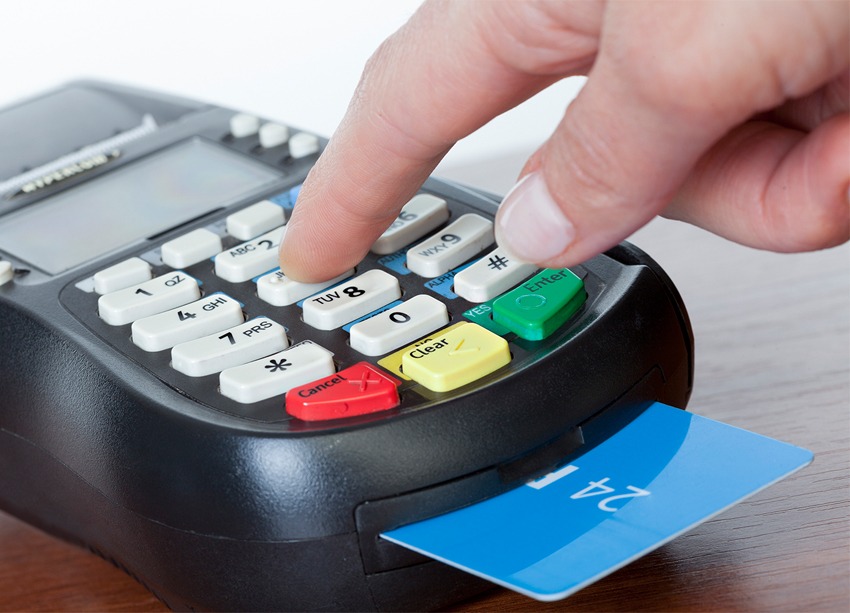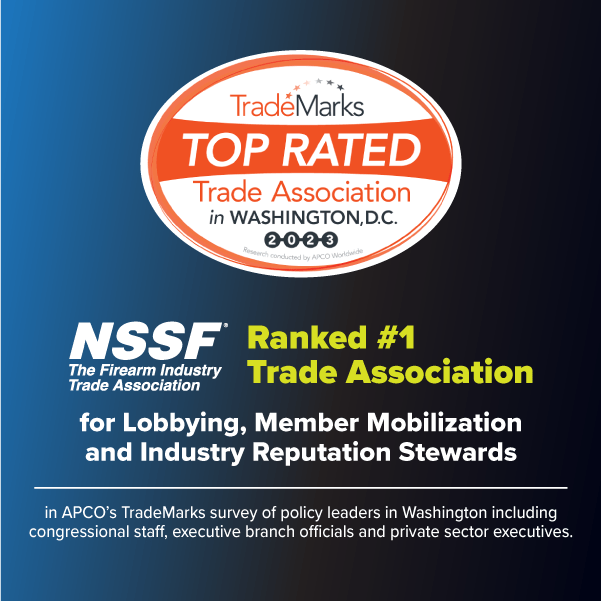 Back to News
Back to News
May 22, 2018
Building a Wall of Business Credit — Three Paths to Improvement
In Part II of this article, we discuss three specific ways any FFL can begin to build and improve their business credit rating.
In Part I of this article, “Building a Wall of Business Credit – Borrowing Has Benefits,” I discussed why having established credit for your FFL provides your business flexibility, can stave off the wolves when times are lean and even improve your turn rates. Here are three ways you can begin to establish your FFL’s business credit or improve a credit profile you’ve already begun.
1. Do Business with Vendors Who Report
No matter what sector of the industry you are in, you have to make purchases. In the case of small businesses in particular, many have a tendency to do two things that are counter-productive in the long run: excessively using debit cards or making cash purchases and doing business exclusively with small local vendors or “buddies.” While shopping small can have its advantages, it can also be a surefire way to not have a business credit rating when you need it.
It is important to have a mix of larger companies within your vendor pool, because those companies will offer terms (which you should seek and accept even if you never intend to use them), and those companies will report to Dun & Bradstreet (D&B), the small-business equivalent of Standard & Poor’s or Moody’s. D&B maintains a creditworthiness database on thousands of small businesses via its system of “DUNS Numbers.” So, not only does doing business on terms with a large vendor give you a powerful trade reference, it also begins to establish a reporting history on your business (note I said business, not on you as an individual).
D&B will assign your business a number and establish a file, without you having to proactively do anything, if you begin to do business with a vendor that reports (simply ask that vendor’s receivables department to make that determination). You can also contact D&B to begin working together directly to build your business credit file. When the day comes that you have a healthy score attached to your DUNS number, credit becomes easy both with trade and bank partners, just as with your personal FICO score and even if you never use it.

2. Terms = Turns
As I’ve said, doing your purchasing on terms with trade partners can be a powerful thing, whether or not those partners report on your account. This is a massively important and often overlooked component of our global financial system and is no less important to the firearms industry. Among non-financial companies internationally, trade credit (measured by accounts payable) amounts to an average of between 12 and 17 percent of total assets — that’s a huge percentage of a company’s overall capitalization! Additionally, globally, an average of 20 percent of all externally financed corporate investment is done through trade credit.
If you are missing out on this component, you are operating at four-fifths the power as a business, when compared to your competition that is utilizing such credit. The magic of doing business on terms is that it can potentially allow you to cycle your inventory for profit before you have to pay for it!
All retailers know that turns are their best friend. What if you could finance an entire inventory turn (or multiple turns) with no interest? Most trade partners will extend even a modestly established business 30-day payment terms. As relationships grow, these terms can grow out to as long as six months. Additionally, these types of relationships often come with early payment discounts of which you can avail yourself if you are in a cash-rich position.
If you are in firearms retail, terms with your distributors can be a particularly powerful tool. Many offer terms as long as 90 days interest-free. This is a service to you, as they are doing the hard work of establishing credit on their end with banking institutions to finance those terms. Accept the favor and let the timing work toward your advantage!
The longer and more successfully you conduct business on trade terms, the stronger and more diverse your trade references become, further building your business credit rating and making access to credit much easier in the future should you need it.

3. Carefully Choose and Use a Business Credit Card Product
There is no shortage of financial products out there that promise to help businesses with cash flow, but there are also no magic bullets. For a small business, choosing the right product among the sea of options can leave business owners feeling like Goldilocks before she found baby bear’s bed: some are too big, some are too small and none feel “just right.”
There are many considerations that go into choosing the right card program for your business, That’s another article in and of itself, so, for the purposes of this discussion, the two most important criteria are rewards and the type of account.
Rewards are very important and can add up significantly over time. Card account rewards can range from 1 to 5 percent depending and can take the form of cash back or accumulating points that can be redeemed for goods or statement credits. Either way, they add up and can be extremely useful in financing purchases, travel or even just a credit toward your bill. If you spend $250,000 annually on a business credit card account, that could leave you with $2,500 to $12,500 in rewards to use next year, no small contribution.
The type of account also matters. You will need to find a card that will be in the name of your business, thereby building a credit history for your business separate from the individuals who own and operate it. In many cases for a small business, a business card account may also require a personal guarantee from an owner. This is perfectly fine, but be careful (ask customer service!) and ensure that any card you sign up for will list the EIN of the business, not just the SSN of the guarantor.
A good business credit card account can provide additional cash flow (via the rewards or cash-back programs), allow you additional time to finance and manage expenses (even just by virtue of the statement cycle if no balance is carried) and build credit for your business.
About the Author
Josh Fiorini is the former CEO of PTR Industries, Inc., and spent the first decade of his career in finance holding positions as an equity analyst and portfolio manager before starting his own hedge fund that led him to the firearms industry. This experience, along with a deep background in manufacturing, banking and private equity has made him a sought-after contributor on numerous boards and discussion groups on political and economic issues. Currently, Fiorini invests his time and resources into non-profit initiatives and acts as a contributor and management consultant to various firms in the firearms industry. His activities have been reported in such publications as The Wall Street Journal, The New York Times and USA Today.
You may also be interested in: Turn Rate A Firearm Retailer’s Best Friend for Getting Inventory “Right”
Categories: BP Item, Featured, Ranges, Retailers, Top Stories









